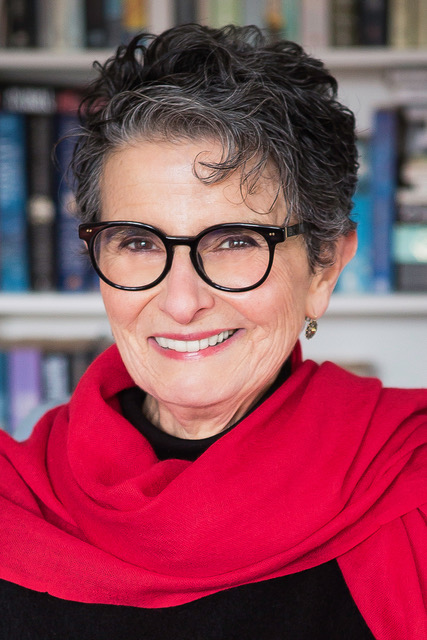Two things happened to me in 2019. My first novel, Present Tense, was published, and I turned 70.[1] So, when Sisters in Crime suggested I blog about becoming a late-onset writer, I thought I should share lessons learned along the way. Based on limited experience (one book does not an expert make), here are ten tips which, if you’re thinking of becoming a writer, will save you time and money. You’re welcome.
- Don’t waste time. I decided to become a writer six years ago. It was a sudden – I’d built a career as a corporate suit, and, if I say so myself, was quite good at it. Then one day (and Pinot Gris may have been involved), I told a friend that I’d always wanted to write. I realised that if I meant business I’d better act soon, and resigned the next day. Now I have to scramble to make up for lost time. So if you have the urge, don’t wait until it’s too late.
- Think about money. It’s all very well embracing poverty, but you probably need to eat. Some people can, or must, work as well as write. When I left my full-time job, I reinvented myself as a freelance writer and, surprisingly, got enough work to fill my days. This meant, of course, I wasn’t writing what I wanted to write (see section on procrastination, below). So I had to recalibrate. Now I turn down work so I can write; it means I can’t buy bright shiny things but I’m happier. It’s a tightrope, and one you need to think about. If you’re bad at money, as I am, some professional advice might be in order.
- You don’t need a lot of equipment. I started my writing journey by acquiring every conceivable consumer item. Besides a laptop and printer (which you actually do need), I bought pens, pencils (coloured and plain), fancy sharpeners, and notebooks with elastic loops (the ones that cost too much to write in). I installed a whiteboard (for ideas), a speaker (music to write to), and an essential oil burner (smells for inspiration). I converted the spare bedroom into an office and spent days organising it. Then I sat at my (new) desk wondering what to do next.
- Avoid reading books about writing. I’ve done the research for you. In lieu of actually writing, I read pretty much every book on the subject, and only two helped. The first was Stephen King’s On Writing. King’s book mixes memoir and advice, and in it he talks about his writing schedule. He writes every morning and I decided to do the same. Once I’d convinced my friends not to interrupt (see the section on procrastination, below), I got into the habit. I swim, then I write. Pretty much every day. The second helpful book was Becoming a Writer, by Dorothea Brande. Don’t be put off by her quaint style. Brande deals with becoming a writer from the inside out, and she’s good. In fact, I came to the book via Hilary Mantel’s tips for writers. Mantel advises: ‘Read Becoming a Writer and do what it says, including the tasks you think are impossible.’ Worked for me.
- Procrastination is easier than writing. I am the princess of procrastination, the duchess of distraction. The moment I sit down to write, I think of something else to do. I even bought muffin tins so I could practise what Fiona Wright calls ‘procrastibaking’ – that is, when I wasn’t posting cat videos on Facebook. My house was sparkling, my clothes repaired. Even my oven was clean. Unfortunately, I hadn’t actually written. Dorothea Brande’s exercises helped. And so did two pieces of software: Tomighty and Freedom. Tomighty is a timer based on the Pomodoro principle. It times you for about half an hour. You must work without stopping during the timed period but you can take a break when it pings. Freedom, on the other hand, lets you lock yourself out of the internet for a set time. It hurts but it’s good for you.
- Do you really need a creative writing course? Only if it gives you technical help, feedback, and boosts your confidence. I sat through a completely useless community course and then, still convinced of my lack of worth, enrolled in an MA in Cultural and Creative Practice. I enjoyed the MA so much I stayed on and have just submitted my doctoral thesis. Without a doubt, these courses helped me and I’m glad I did them. They gave me structures, deadlines and support. They also gave me feedback (see below). Both, however, distracted from the main game, i.e. making stuff up. So think carefully before you commit.
- Get feedback. From a course, or from people whose critical taste you trust. I’m part of a writers group of eight, and we all take writing seriously. I get stringent and helpful feedback, and there are lots of laughs and dinners and shared successes and failures. I can’t stress how important this is. Writing is solitary and you need readers. Besides, being with like-minded people is food for the soul and will keep you going.

8. Talking about like-minded people, what about Sisters in Crime? Early on, I sent a story to the Scarlet Stiletto competition and when I got The Call, took myself down to Melbourne. And there, in one room, were a group of women I could relate to: interested in crime writing, bossy and sassy and fantastic fun. If you write other genres, submit somewhere appropriate, even if you think you haven’t got a hope. You’re part of a writing community. Find your tribe.
(Natalie is pictured here receiving a Scarlet Stiletto Award for Best Cross-Genre story from Geraldine Hakewill in 2019.)
9. Be out and proud. Have chutzpah. When people ask you what you do, tell them you’re a writer, even though you might feel like a total wanker doing it. I find the words hard to get out. But by saying I’m a writer, I’m coming to believe it. It reminds me what’s important, and what needs to come first.
10. And finally, Just Do It. Above my desk, in front of my computer, there’s a quote by the artist Chuck Close: ‘Inspiration is for amateurs.’ He means that professionals don’t wait for fairy dust. They go to work every day. So if there’s just one piece of advice you take from this blog – and I wish I took it more often myself – it’s that no matter how old you are, if you want to become a writer the answer is easy. Write.
[1] Present Tense is of course fantastic. It’s a police procedural set in Cape Town and available from the usual places. My publisher told me to say that.
Natalie Conyer’s debut crime book, Present Tense, is available from Clan Destine Press , Booktopia and selected bookstores including Gleebooks in Sydney.
